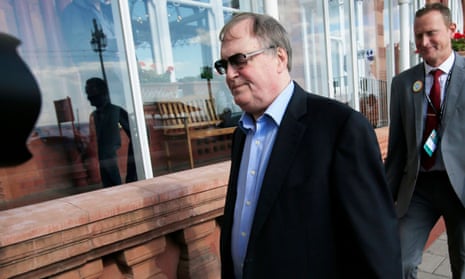A complaint by Lord Prescott over a Times article which referred to him allegedly mistakenly saying “terracotta” instead of “terra firma” has been rejected by the press watchdog.
The former Labour deputy prime minister lodged a complaint with the Independent Press Standards Organisation about a Times article titled “Big John back on terracotta in zero year”.
The article was a political sketch which drew on an interview Prescott had given the previous day.
The headline referred to a comment allegedly made by Prescott years ago when disembarking from an aeroplane that it was “great to be back on terracotta”.
Prescott says that he has never said those words, that the Daily Mail has previously printed a correction for repeating the claim, and that the Times did not contact him in advance of publication to check the accuracy of the quotation.
Prescott had complained directly to the Times which amended the online version of the article stating that he denied making the comment.
In defending the complaint to Ipso, the Times scoured the internet for use of the phrase and found that it produced “dozens of results” attributing it to Prescott.
The earliest was in the Guardian back in 1999, according to the Times’s online research.
The Times had also previously attributed the comment to Prescott in a panel attached to a piece in 2006, written by the same journalist who wrote the profile that was the subject of the Ipso complaint.
“Given the passage of time, the newspaper was unable to provide material to support its position that the quotation was accurate, and for the same reason the [Ipso] committee was ultimately unable to establish what exactly the complainant had said,” said Ipso. “The newspaper was, however, able to demonstrate that the quotation had previously been widely reported, and for a long time had gone undisputed.”
The Ipso committee said that given Prescott is known for his “use of language” it was not “significantly inaccurate or misleading” to attribute the quote to him.
The watchdog rejected Prescott’s complaint that the Times was in breach of accuracy rules.

Comments (…)
Sign in or create your Guardian account to join the discussion